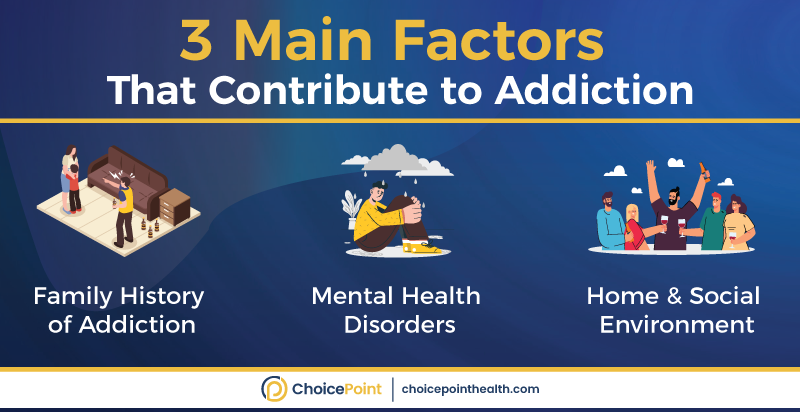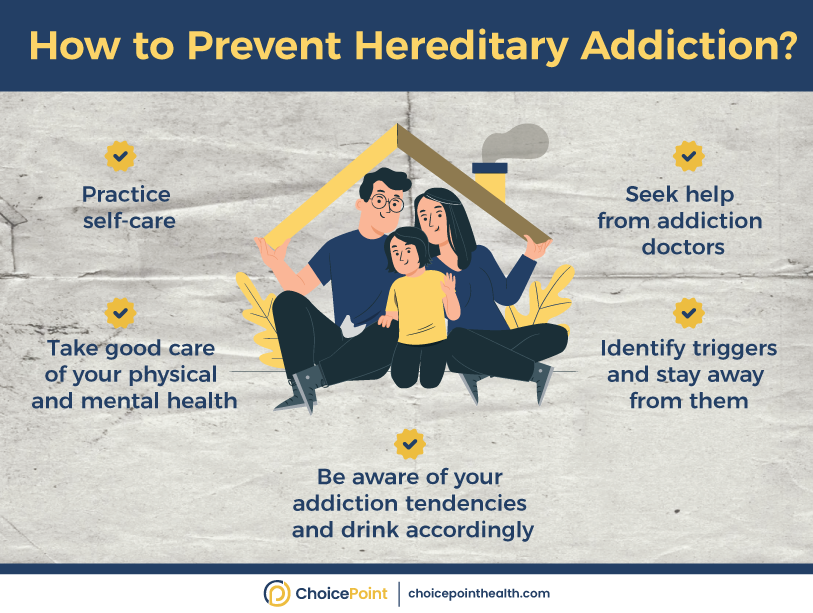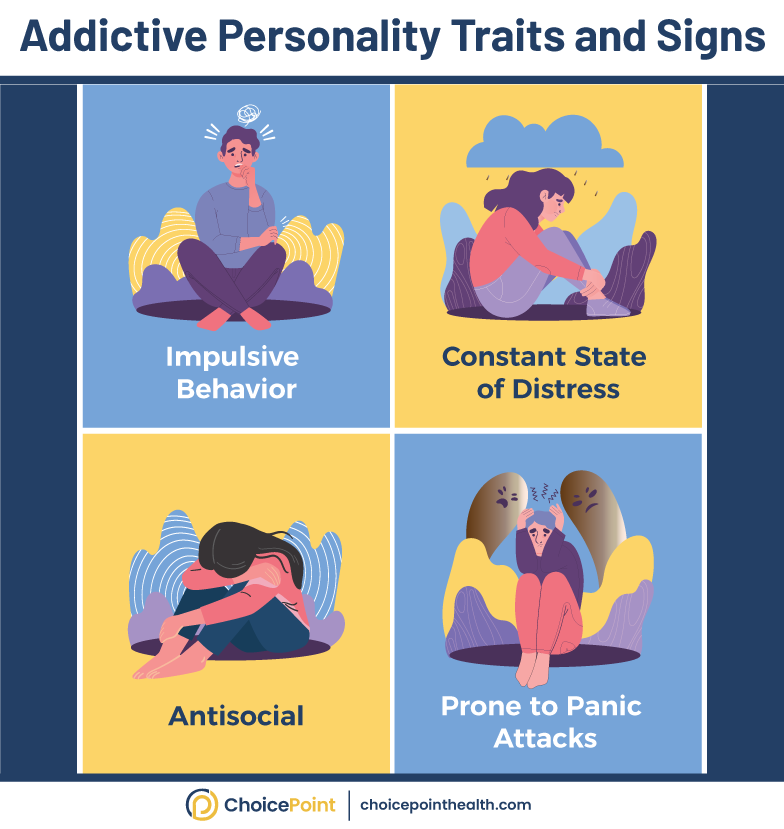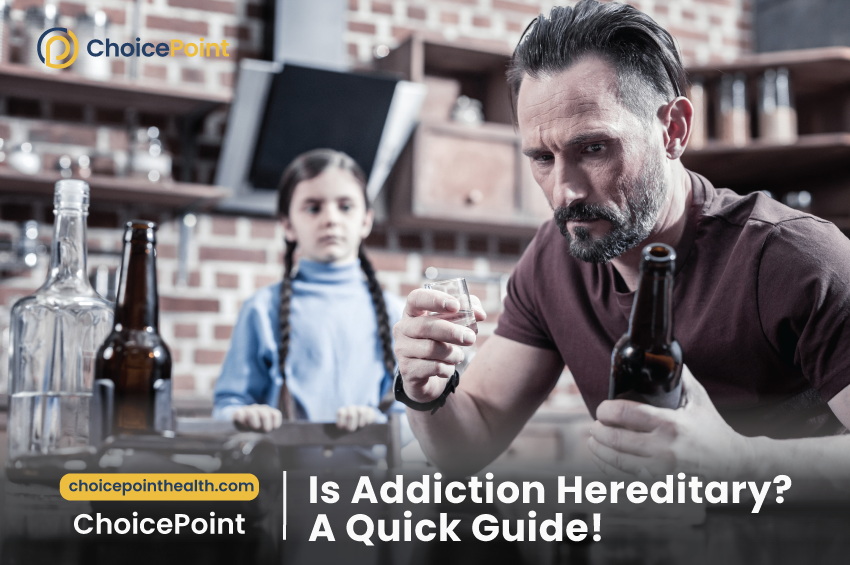What causes addiction? Why is it that even with all the access to quality treatment and all the information in the world, people still struggle with addiction? One might ask, “Is addiction hereditary? It is often said that bad company ruins good morals, but sometimes it is in the genes. Is addiction an environmental or learned phenomenon, or can it be genetic?
Want to learn about your alcohol dependence level? Please fill out this free addiction assessment or call us at 844.445.2563.
Table of Contents
Is Addiction Hereditary? A Quick Guide!
To determine if addiction is a hereditary phenomenon, observatory research was conducted to discover that patients going through the same surgical pains are prescribed opioid painkillers; some develop addiction while others do not; why do some people have stronger drug tolerance compared to others? Is it the genes that make a person prone to addiction? Is addiction hereditary?
Empirical Evidence to Find Out if Addiction Is Hereditary or Not?
The research was conducted to find out if there is a connection between addiction and the genetics of a person. A determined sample of the population was kept under consideration; with particular focus on identical twins; it was found out that 10% of the population developed an addiction and similar patterns in fraternal twins indicated the connection between genes and the addiction vulnerability; thus, the chances of developing an addiction is hereditary.
Medical Reasons to Justify Addiction Is Hereditary
It has been found that people with the serotonin receptor gene Htr1b are more tolerant of addiction than those who lack this gene.
Frequent exposure to drugs creates the body’s tendency to stand it by blocking serotonin receptors, which can thus be transmitted in genes as an evolutionary trait.

3 Common Factors That Contribute to Substance Abuse
What Factors Make You Susceptible to Hereditary Addiction?
Sometimes it is not the genetic makeup that makes you susceptible to addiction, as the absence of serotonin receptor gene, but it is sometimes the hereditary traits that make you vulnerable; thus, once identified, the persons with vulnerability to develop addiction must be treated with care. Certain factors contribute to determining the level of tolerance or vulnerability towards addiction.
Expression of Genetic Makeup
Exposure to the environment expresses the person’s vulnerability. Sometimes, hereditary addiction requires environmental stressors to be reinforced; this increases the risk factor by 40-60%. Thus, even if the addiction is genetic, it can still be managed by regulating environmental stressors.
How Does Mental Health Affect Substance Abuse?
Sometimes hereditary mental disorders like autism, ADHD, and bipolar disorder can lead patients towards substance abuse and addiction. Therefore, addiction appears to be hereditary even as a secondary, not primary trait.
a) Gender
X and Y genes also determine the vulnerability or tolerance towards addiction. For example, research has found that males are relatively more vulnerable to developing an addiction but once developed, they are also relatively quicker to overcome it.
b) Inherited Traits
Sometimes, your personality and inherited traits make you vulnerable to substance addiction; weaker self-control, aggressive behavior, impatience, impulsivity, or sometimes metabolic unrest pushes persons towards substance abuse. Therefore, your genes say a lot about you and your tendency to develop substance addiction if posed to.
Is Drug Tolerance or Intolerance Inherited?
Our body sometimes develops drug tolerance if frequently exposed to the drug for too long; this means that consuming the same amount of drug will generate a less intense response.
Drug tolerance cannot be hereditary, as it depends upon the frequency of drug consumption, yet drug intolerance can be inherited. Drug intolerance means that the body reacts adversely to the intake of drugs; genes determine our capability to develop addiction and the impact they will have on us.
Hereditary and Environmental Influence on Addiction
Even if genetic makeup constitutes one of the prime factors to make a person vulnerable to drug addiction, environmental factors also contribute. Certain factors indicate the heredity of addiction vulnerability:
- Family history of addiction makes the persons more vulnerable
- The absence of the serotonin receptor gene creates addiction vulnerability
- The shrunken amygdala makes a person more susceptible to drug addiction
- Drug-related disorders and mental disorders create a greater risk of addiction
Apart from these genetic or hereditary susceptibilities, environmental factors play an important role. Exposure to the drug determines the impact of genes; other factors like stress, depression, work environment, and the toxic company also play a significant role.
How Can Hereditary Addiction Ruin Your Life?
Predisposition to drug addiction can cause serious troubles, it can impact the personal and social life of a person, and the impacts can run down in the generations, including:
- Health conditions, such as heart disease, cancer, liver disease, kidney disease.
- Aggressive or violent behavior
- Cognitive impairment
- DUI (Driving under the influence) arrest
- Disruption of one’s career and the loss of one’s job
- Having financial difficulties
- Relationships with partners, friends, and coworkers are all harmed.
- Psychological dysfunction is a condition in which a person’s ability to operate is impaired
- Family disruption
- Homelessness
- Death
Is It Possible to Quit Hereditary Addiction?
Because hereditary factors play a part in addiction, people who have a family history of substance abuse are more prone to develop a problem. Even if you are susceptible to addiction, there are techniques to avoid or prevent it.

5 Practical Addiction Prevention Tips
Be aware of your addictive tendencies. You’ll be better able to recognize addictive behaviors in yourself if you understand the origins and indicators of substance misuse. Identify all of your potential triggers and make every effort to avoid them.
Other ways to prevent addiction are staying on top of your mental health, practicing self-care, and staying physically active. It is important to bring it to a halt to let the generations yet to come to be spared from the devastating impacts of addiction.
How to Identify Hereditary Addiction: Genetic Addiction Risk Score
Genetic Addiction Risk Score is the test to identify polymorphism associated with genetic addiction. It is non-invasive genetic test physicians prefer to diagnose hereditary addiction beforehand to prevent victims from falling into a trap.
GARS, for example, is a genomic test that can improve clinical interactions and decision-making. Knowledge of precise polymorphic associations can aid in the reduction of :
- Guilt and denial.
- Corroboration of family gene-o-grams.
- Risk-severity-based decisions about appropriate therapies, such as pain medications and addiction risk.
- Selection of the appropriate level of care placement (i.e., inpatient, outpatient, intensive outpatient, residential).
- Determination of the length of treatment.
- Determination of genetic severity-based relapse and remission.
What to Do if You Find Out That You Are Genetically Vulnerable to Addiction
Your road towards safe healing is just a few steps away:
- Realization of the need for treatment
- Awareness regarding the appropriate treatment
- Schedule an Appointment at Choice Point
- Insurance verification
- In-person or Online prescription
Treatment and Recovery From Hereditary Addiction
If you come to identify that you have a family history of substance addiction and you have inherited vulnerability to addiction, you don’t need to freak out.
- The first thing you need to do is get a medical checkup done; to identify how much your body can tolerate.
- You are required to adopt preventive measures to avoid exposure of already vulnerable genetic makeup to triggering factors, including work environment, stress, toxic company, and family issues
- Behavioral and cognitive therapies can help persons develop stronger willpower and self-control to avoid the triggering factor and overcome genetic susceptibility.
Expert consultancy, medication, regular sessions, and timely psychological support; you can access all of this at ChoicePoint.
What to Look for in a Treatment?
For a treatment to go successful; one must look for the following essentials:
- Professional diagnosis
- Medical consultation
- Prescribed medication
- Psychological assistance to overcome withdrawal symptoms
- Proper regulation and checks and balances to ensure commitment
- Detox treatment to get rid of the toxins from the body
- Therapeutic assistance to fix behavioral issues linked with addiction and withdrawal

Common Traits of an Addictive Personality
ChoicePoint Can Save You From Hereditary Addiction
If you have found out that you have hereditary addiction, you can trust ChoicePoint to assure an addiction-free lifestyle. It offers treatment of your choice:
Outpatient Treatment and Telehealth Services
Looking for a reasonable treatment option but cannot afford inpatient treatment, ChoicePoint also offers an outpatient addiction treatment program. Therapeutic sessions are planned according to the availability of persons in an outpatient addiction treatment program.
Additionally, it includes medical treatment and psychiatric therapies to assist patients in coping with anxiety and withdrawal symptoms.
Why ChoicePoint?
Telehealth services have the following advantages:
- You can get therapy from the convenience of your own home.
- Attend meetings and treatment sessions without having to deal with transportation issues.
- Fewer associated costs
- Treatment is flexible and can be made to fit any schedule
- Clients can access telehealth services at any time, from anywhere
We have provided you with a precise and comprehensive guide on addiction hereditary and any other necessary information. Time is for you to put this information to good use, and ChoicePoint is the place to start if addiction has been a menace for you!
Choose ChoicePoint. Choose an addiction-free life!
Medical Disclaimer:
ChoicePoint aims to improve the quality of life for people struggling with substance use disorder and mental health issues. Our team of licensed medical professionals research, edit and review the content before publishing. However, this information is not intended to be a substitute for professional medical advice, diagnosis, or treatment. For medical advice please consult your physicians or ChoicePoint's qualified staff.









Review Is Addiction Hereditary? A Quick Guide!.